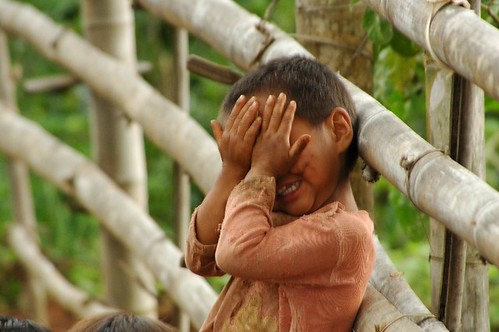Poor from the richness of the Earth
"India is the poorest country in the world. Therefore, to see its poverty is
to make an observation of no value; a thousand newcomers to the country before you have seen and said as you. And not only newcomers. Our own sons and daughters, when they return from Europe and America, have spoken in your very words. Do not think that your anger and contempt are marks of your sensitivity. You might have seen more: the smiles on the faces of the begging children, that domestic group among the pavement sleepers waking in the cool Bombay morning,
father, mother and baby in a trinity of love, so self-contained that they are as private as if walls had separated them from you: it is your gaze that violates them, your sense of outrage that outrages them....
Stay six months. The winter will bring fresh visitors. Their talk will also
be of poverty; they too will show their anger. You will agree; but deep down there will be annoyance; it will seem to you then, too, that they are seeing only the obvious; and it will not please you to find your sensibility so accurately parodied."
So wrote V.S. Naipaul in his excellent book 'An Area of Darkness'. Naipaul has made a wry observation about people from developed countries visiting a poorer neighbour (and none poorer than India, in his world-view). The visitor is outraged, impotent with rage at the widespread poverty and incensed that people can be subjected to such adverse conditions anywhere in the world at all. (All right, I exaggerate; perhaps this is how I usually feel visiting Third World countries, like when I visited Myanmar last June).
But there's a twist to it: the visitor does become numb to it. We are all sensitive creatures, and something as staggering in its obviousness (India's poverty) shock us into emotions in the extremes. I will certainly feel a sense of compassion mixed with depression, a certain futile and resigned feeling when it overwhelms, and finally, consoled that I am lucky to be born in a different place and time.
At some point though, it doesn't do to state the obvious - everyone can see for themselves. We are inured and our sensibilities dulled by daily contact, and that resigned attitude gives way to an indifferent air. As a human being, we adapt too well to our surroundings - we often don't make that effort to change it anymore, and instead, grow to accept it. V. S. Naipaul points out that once in a while, someone new to such sensations - as you have been numb to them, they are still raw - could make the 'error' of pointing the obvious out to you.
And that is the tragedy, the comic error of our ways. Our reactions vary - we wave it off, we shrug, we exclaim unsolicited insults "Been there, done that, got the stupid T-shirt". It's cruel to the newcomer; it's crueler to yourself I feel, for you've lost that naivete. I want to keep seeing things afresh and anew - poverty is poverty, and yes it should shock us. Let us stay shocked though - for it doesn't go away even when our sensitivities do.


0 comments:
Post a Comment